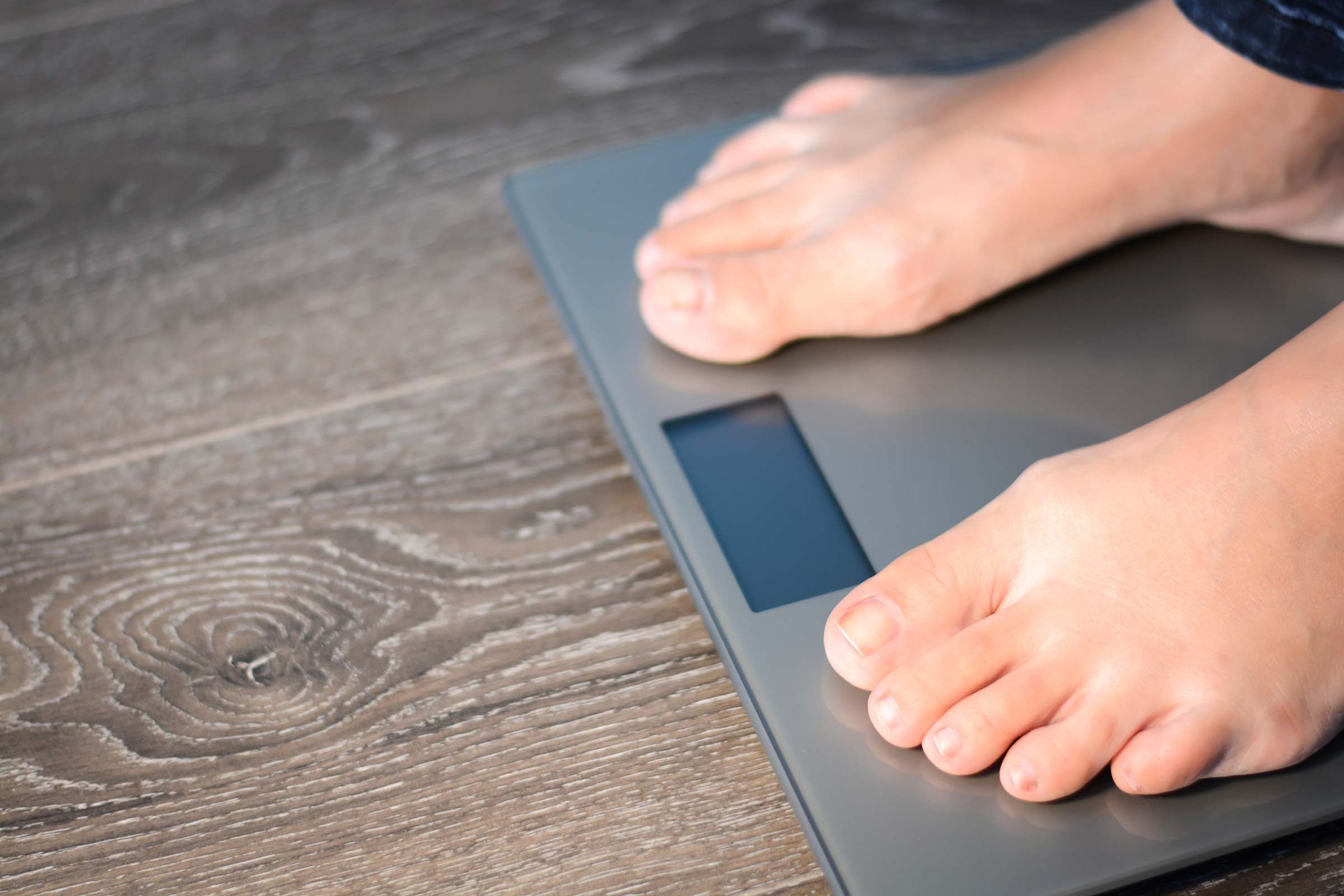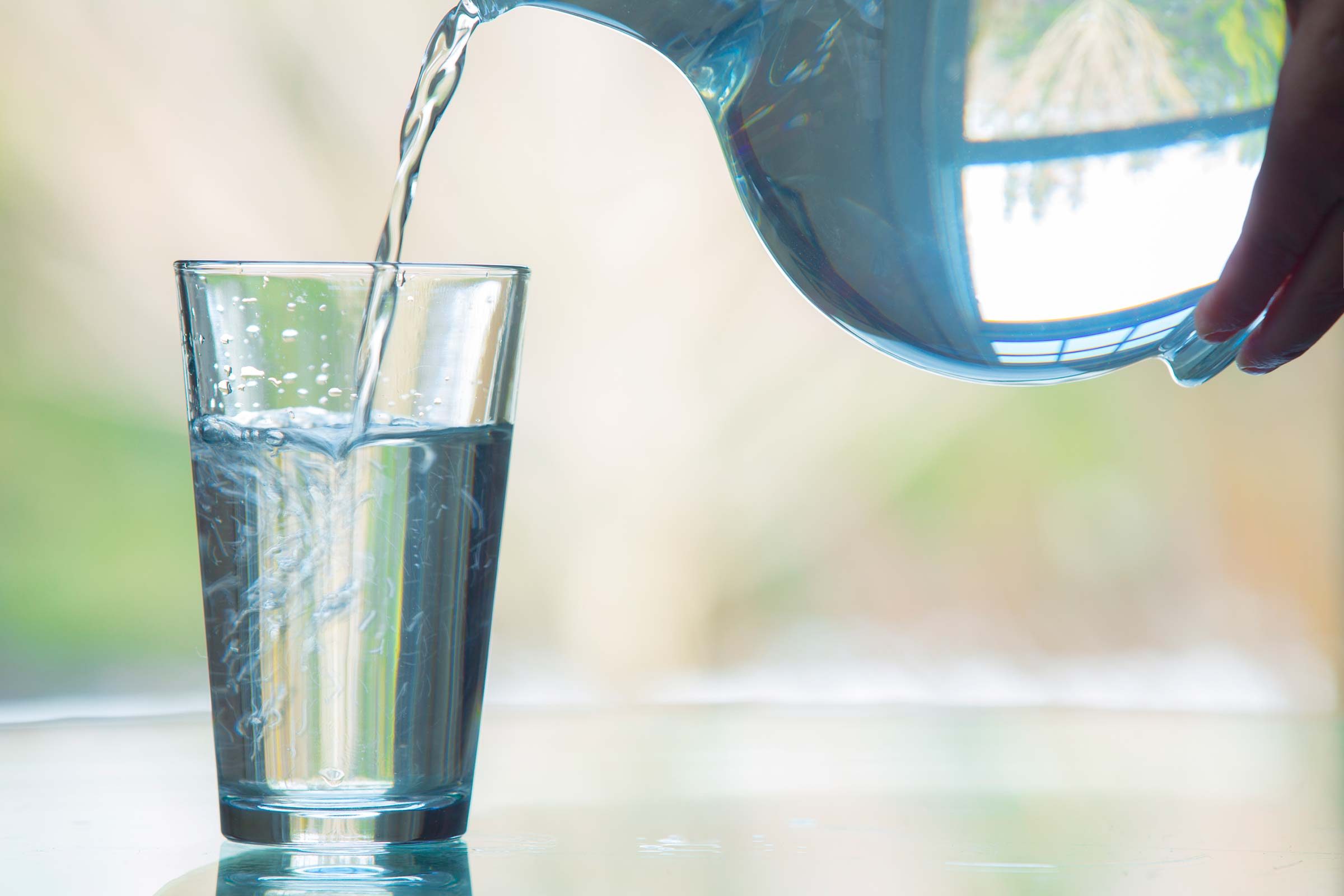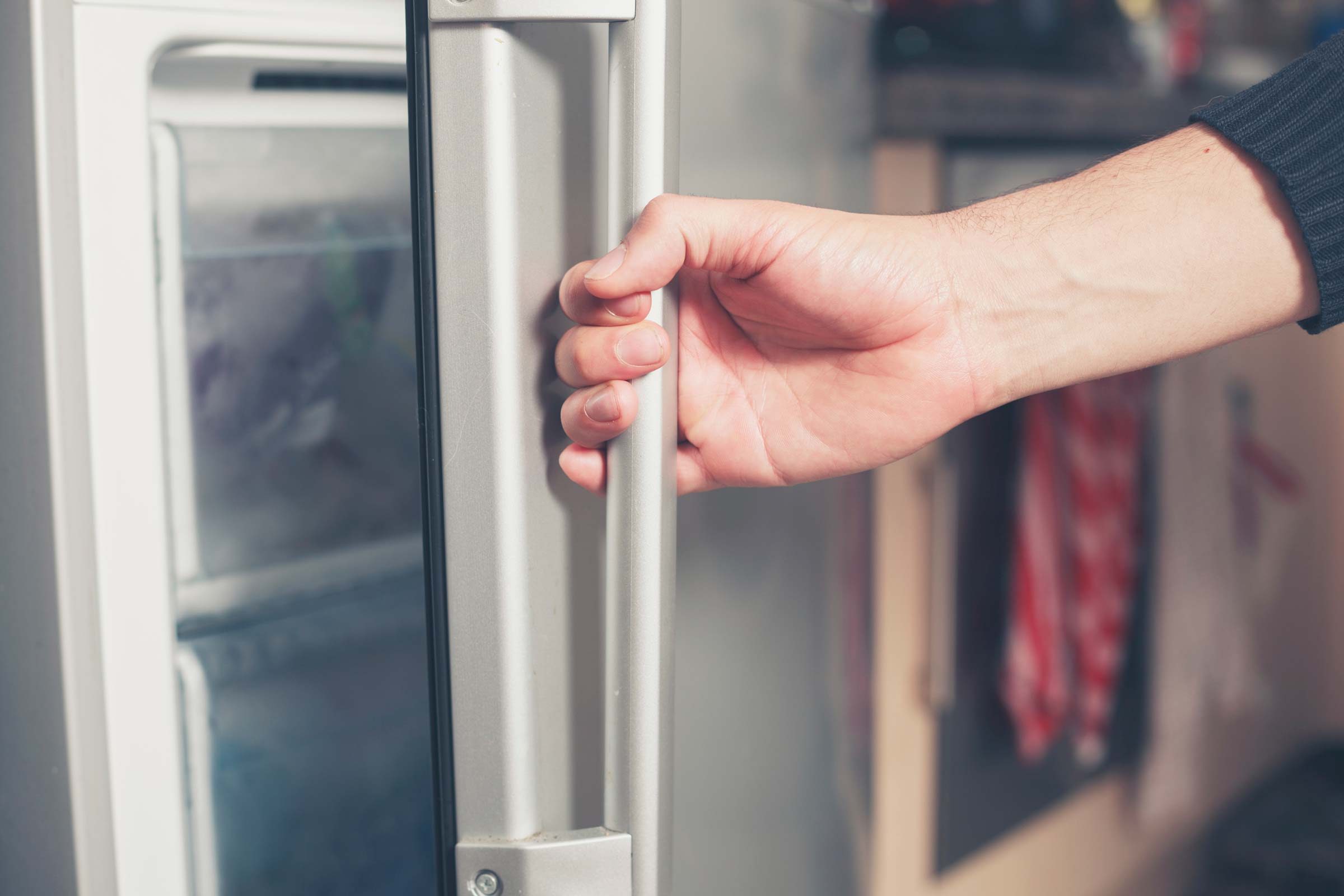
Understand the science
Intermittent fasting does not mean starving yourself, which can cause the body to hold onto stored fat instead of burning it off as fuel. Instead, intermittent fasting (also called scheduled eating) typically refers to eating only during certain periods of the day—whether you go for 12 to 18 hours without eating, limit yourself to two meals during a 24-hour period, or refrain from eating for up to 36 hours once or twice a week, or several times a month. “Intermittent fasting is designed to help burn fat and cleanse the body,” says Alicia Armitstead, a chiropractor at Healing Arts NYC. When we eat three meals a day, we train the body to burn sugar stored as glycogen for energy, instead of burning fat. But when we fast for at least eight hours—which is the amount of time it takes for the body to burn through its glycogen stores—the body starts burning fat for energy instead. If you just skip breakfast, you’re likely fasting for 16 hours, so that could help your body shift into fat-burning mode. (We already know that eating late at night can promote weight gain.) In a mouse experiment from 2014, rodents who fasted for 15 or 16 hours every day dropped 12 percent of their body weight compared to mice who ate the same amount of calories spaced throughout the day. Other animal experiments have showed similar results.

Intermittent fasting has health benefits besides weight loss
Intermittent fasting is not just a weight-loss strategy. It can also help protect the body against disease. It works by generating mild stress on the body, as Mark Mattson, PhD, explains in an article in Scientific American. This stress acts as a catalyst, propelling a ramp-up of the immune system against cell damage. Although most of the studies to date have been on animals, researchers believe that benefits of intermittent fasting include increased longevity, reduced cholesterol levels, increased energy, and decreased incidence of asthma, Parkinson’s disease, and Alzheimer’s disease. In the mouse experiment from 2014, the rodents who fasted for 15 to 16 hours a day showed lower levels of inflammation and had greater protection against diabetes than the mice who ate the same amount spread throughout the day.

Intermittent fasting is not for everyone
As with any dietary approach, intermittent fasting is great for some people and not others. If you are drawn to this type of food plan, the first thing to do is take inventory of your overall health. “It can be a good fit for someone who is healthy and wants to take off some weight,” says certified holistic nutrition coach, Andrea Moss of Moss Wellness. She doesn’t recommend it for people with any type of serious illness or disease, such as chronic fatigue syndrome, adrenal fatigue, an autoimmune disease, or diabetes. It also may not be great for people under high levels of stress or in intense athletic training. People struggling with insomnia may also have a hard time adapting to this lifestyle. If you feel strongly about trying intermittent fasting, check in first with a healthcare provider or nutritionist. Fasting is never recommended for children or teenagers.

You’ll need to do some strategic planning
Before you hop on the intermittent fasting train, you’ll need to do some planning. “This means making sure your home is stocked with healthy, whole food,” Dr. Armitstead says. “The last thing you want is to have the fast be over, and the only thing around to eat is cake and ice cream.” Foods to have on hand include fresh vegetables and fruit, lean protein sources, and high-fiber whole grains. Although many people mistakenly assume they can eat anything they want, in mass quantities, between fasting periods, Moss recommends avoiding overly processed foods or those high in sugar. Or you’ll miss the health and weight loss benefits. “If your intention is to have a cheesecake-fest between fasting periods, forget it,” Moss says. “Don’t overeat or conversely, starve yourself, during eating periods. Eat appropriate amounts of healthy fats and lean proteins and you’ll be more likely to be able to stick to this plan.”

You’ll want to listen to your body
In addition to weight loss, intermittent fasting fans swear they have increased energy and clarity of thought, and just feel terrific after fasting. “There are different ways to do this food plan,” Dr. Armitstead says. “After the transition period, you should feel good, with more energy and a sharper focus. If it doesn’t feel good, play with it until you find what works for you.” (These natural energy boosters can help!) For most people, she adds, it takes around five to seven days to adjust to not eating until lunchtime. You should start seeing benefits then. If it still feels hard after a week of 18-hour fasts, try 14-hour fasts, and work your way up. If you feel feel light-headed, dizzy, tired, and nauseated, this lifestyle of intermittent fasting may not be right for you.

You can drink while you’re fasting
Not eating doesn’t also mean not drinking. In fact, you want to continue drinking throughout your fasting period, because not taking in enough liquid can actually be dangerous, causing heat stroke, kidney failure, and other types of illness. Don’t make the mistake of trying to go without fluids during fasting periods. Drinking plenty of water may even help with weight loss, as studies have shown. Just make sure you know what you’re allowed to drink while fasting. Some people drink unsweetened herbal tea, such as chamomile, while fasting. Adding a pinch of lemon is fine, but do not add milk, cream, sugar, or artificial sweeteners to your beverage. (Learn how drinking lemon water affects your fast.)

You’ll want to set reasonable goals
Before you begin, determine what your goals are for this food plan, and allow yourself flexibility. “Our bodies change over time,” Moss says. “Our physical and emotional needs may even change season by season, as we age, or with our health. Intermittent fasting may work for you for a while, and then stop working for you for any number of reasons. Do it as long as it feels good, and produces the results you want.” You may have a goal weight in mind. Once that goal is met, you may wish to continue with this lifestyle or modify it, so that you fast more, or less, over the course of a week or month. “It comes down to you, your goals, and your health,” Moss adds.

You’ll need to keep up your other healthy habits
If your goal is to live longer or avoid disease, intermittent fasting may work, or it may not. There simply isn’t enough research yet to provide a 100 percent guarantee, which is why you can’t treat intermittent fasting as some kind of health panacea. Don’t stop taking prescribed medications or seeking out medical care for any illness or diagnosis you have. The intermittent fasting lifestyle is also not a reason to eliminate screenings for diseases, such as cancer. If you wish to try this type of eating plan on for size, don’t make it your only proactive, healthy behavior.